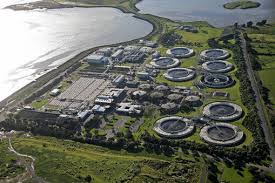Being familiar with your destination is a huge part of making the most of field trips – talk about the trip in advance, look at a map, visit the website, have a purpose for the visit.

Go slow and enjoy the time together. Stop long enough for lunch – make eye contact, tell them you’re enjoying the time with them, talk about what you’ve seen/learned in the first part of the day and what you’re looking forward to in the afternoon. Strengthening your relationship with your teen is perhaps your main goal for the field trip.
#1 Plan a visit to the nearest large city
 Ride public transportation, visit an observation tower, look at building directories (to pique interest in different careers), see the court house/jury room/city hall, shop and eat lunch at a sidewalk café or underground, walk through the tunnel system, discuss parking, visit a list of 3 or 4 places unique to your city, really familiarizing your teen with downtown will make them more comfortable when it’s necessary for them to go. (Of course, teens that live downtown might plan a visit to the country!)
Ride public transportation, visit an observation tower, look at building directories (to pique interest in different careers), see the court house/jury room/city hall, shop and eat lunch at a sidewalk café or underground, walk through the tunnel system, discuss parking, visit a list of 3 or 4 places unique to your city, really familiarizing your teen with downtown will make them more comfortable when it’s necessary for them to go. (Of course, teens that live downtown might plan a visit to the country!)
#2 Visit a port or waterway
 Learn the impact a port has on your local economy (if this applies). Are visitors allowed to visit a ship? Take a boat tour of the port or ship channel if it’s available. Notice where the ships are from, have lunch where “foreign” food is served – be creative! Often there is a seaman’s center of some type nearby…can you collect books, snacks, etc. to drop off when you visit?
Learn the impact a port has on your local economy (if this applies). Are visitors allowed to visit a ship? Take a boat tour of the port or ship channel if it’s available. Notice where the ships are from, have lunch where “foreign” food is served – be creative! Often there is a seaman’s center of some type nearby…can you collect books, snacks, etc. to drop off when you visit?
#3 Find a quiet place
 Teens usually have so much noise and busyness surrounding them, so it’s valuable to know where to find a quiet retreat. Short, frequent visits to an arboretum or a nature center for a walk or a picnic lunch are often better than an occasional rare visit. Retreating to a quiet place becomes more enjoyable when we’re familiar with the trail system, know where our favorite picnic spot is, etc.
Teens usually have so much noise and busyness surrounding them, so it’s valuable to know where to find a quiet retreat. Short, frequent visits to an arboretum or a nature center for a walk or a picnic lunch are often better than an occasional rare visit. Retreating to a quiet place becomes more enjoyable when we’re familiar with the trail system, know where our favorite picnic spot is, etc.
#4 Unique museums
 Most cities have several museums besides the typical science or fine arts museums. When studying world history visit a Holocaust museum or a military museum; when studying humanities, visit a fine arts or contemporary arts museum, etc. Make a list of the museums located within a comfortable driving time and work them into your school year. Consider visiting two museums in a day, with pizza in between!
Most cities have several museums besides the typical science or fine arts museums. When studying world history visit a Holocaust museum or a military museum; when studying humanities, visit a fine arts or contemporary arts museum, etc. Make a list of the museums located within a comfortable driving time and work them into your school year. Consider visiting two museums in a day, with pizza in between!
#5 Attend World Affairs Council events
 Attend World Affairs Council events with your teens. Often these groups have lunch meetings with notable speakers – we once enjoyed lunch with a foreign ambassador and heard Condoleeza Rice speak. Visit worldaffairscouncils.org to find a council near you. They will also offer unique events such as a world cultures summit, Academic World Quest, etc. Your teen’s study of Public Speaking will be greatly enhanced when they hear the speakers at these events, not to mention their awareness of current events. Use the internet to research speakers and their topics.
Attend World Affairs Council events with your teens. Often these groups have lunch meetings with notable speakers – we once enjoyed lunch with a foreign ambassador and heard Condoleeza Rice speak. Visit worldaffairscouncils.org to find a council near you. They will also offer unique events such as a world cultures summit, Academic World Quest, etc. Your teen’s study of Public Speaking will be greatly enhanced when they hear the speakers at these events, not to mention their awareness of current events. Use the internet to research speakers and their topics.
#6 Learn about religious sites
 When studying world religions, go see relevant sites (mosques, gardens, etc.) in your city. Whether you choose to drive by or actually visit, simply knowing these places exist will help your teen be aware of others’ diverse beliefs and the immense value of their own Christian witness.
When studying world religions, go see relevant sites (mosques, gardens, etc.) in your city. Whether you choose to drive by or actually visit, simply knowing these places exist will help your teen be aware of others’ diverse beliefs and the immense value of their own Christian witness.
#7 Enhance your government studies
 Visiting government buildings can be a fun way to enrich your teen’s typical high school study of government. Visit the courthouse downtown or historic ones in nearby small towns, take part in the political process, tour city hall or the state capital, visit your state senator or representative, sit in on a legislative session, etc. Pack one day with a couple of tours and lunch in the capital cafeteria! Talk with your teen about involvement in government as a voter, a juror, etc.
Visiting government buildings can be a fun way to enrich your teen’s typical high school study of government. Visit the courthouse downtown or historic ones in nearby small towns, take part in the political process, tour city hall or the state capital, visit your state senator or representative, sit in on a legislative session, etc. Pack one day with a couple of tours and lunch in the capital cafeteria! Talk with your teen about involvement in government as a voter, a juror, etc.
#8 Visit a water treatment facility
 Find out where your water comes from and how and where it is treated. This involves research ahead of time, but learning about our water helps us appreciate what we often take for granted. Tour the water treatment facility if possible, or arrange a visit with a city engineer who can tell about the process.
Find out where your water comes from and how and where it is treated. This involves research ahead of time, but learning about our water helps us appreciate what we often take for granted. Tour the water treatment facility if possible, or arrange a visit with a city engineer who can tell about the process.
#9 Visit a waste disposal facility
 Learn what happens to all that stuff we throw in the trash. This will also take some research and advance preparation, but online research, phone calls, etc. are valuable skills to learn. Find out where a facility is and actually go visit. Learn how waste is managed environmentally. This is usually an eye-opener!
Learn what happens to all that stuff we throw in the trash. This will also take some research and advance preparation, but online research, phone calls, etc. are valuable skills to learn. Find out where a facility is and actually go visit. Learn how waste is managed environmentally. This is usually an eye-opener!
We all know the hardest thing about field trips is making them actually happen. While we usually have good intentions going into a new semester, planning and carrying them out is harder than we thought.
Related Article: Seven Fall Field Trip Ideas for the Whole Family
Pull out the calendar, write in your plans, then make it a priority to follow through. Sometimes letting your teen bring a friend is a good idea, but sometimes not. Remember our goal is NOT a busy day, but a relationship that’s stronger because of a shared experience and a good time together.
Get Becky’s Weekly Newsletter on Homeschooling High School
We will never sell or share your email address.



